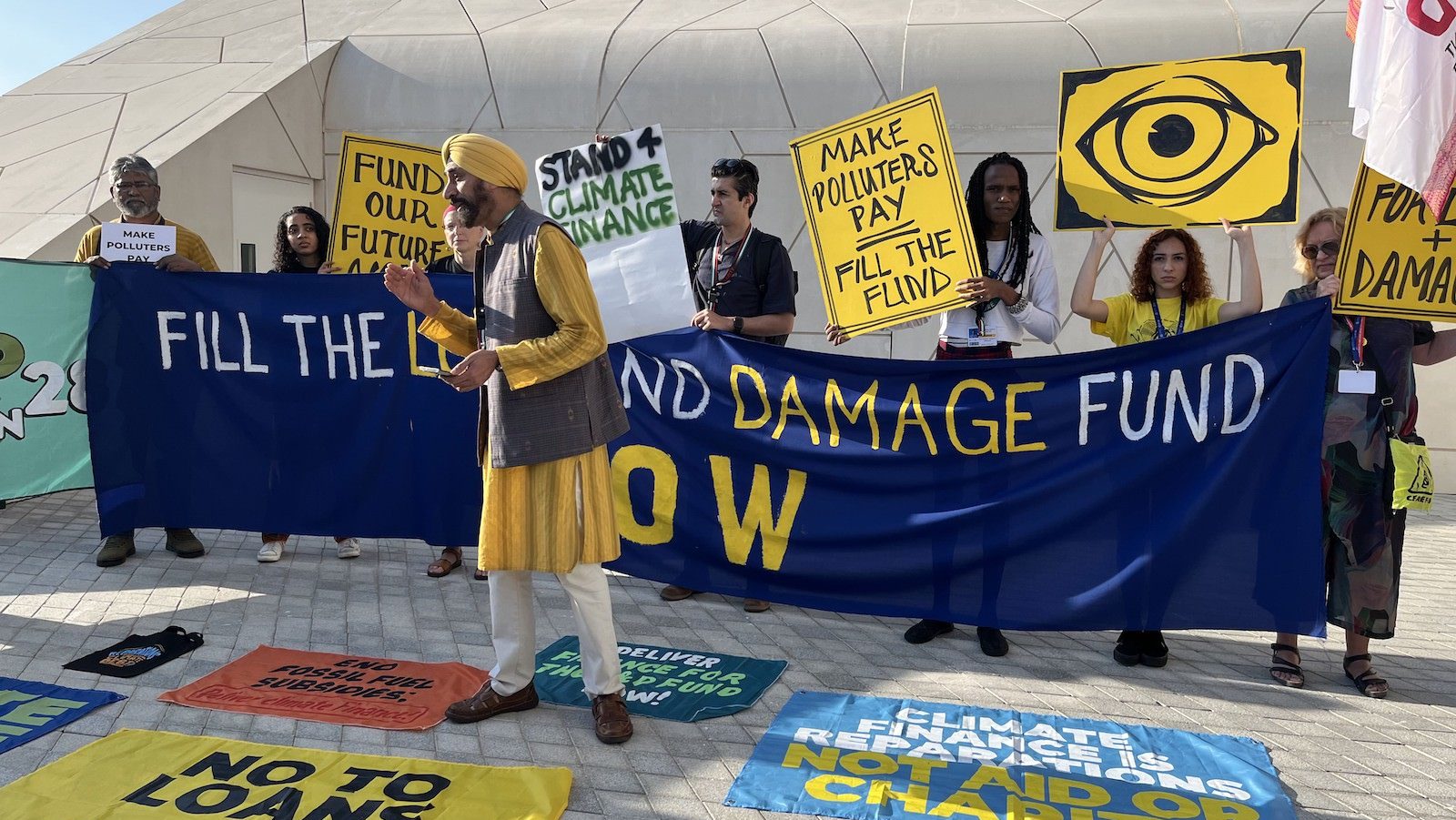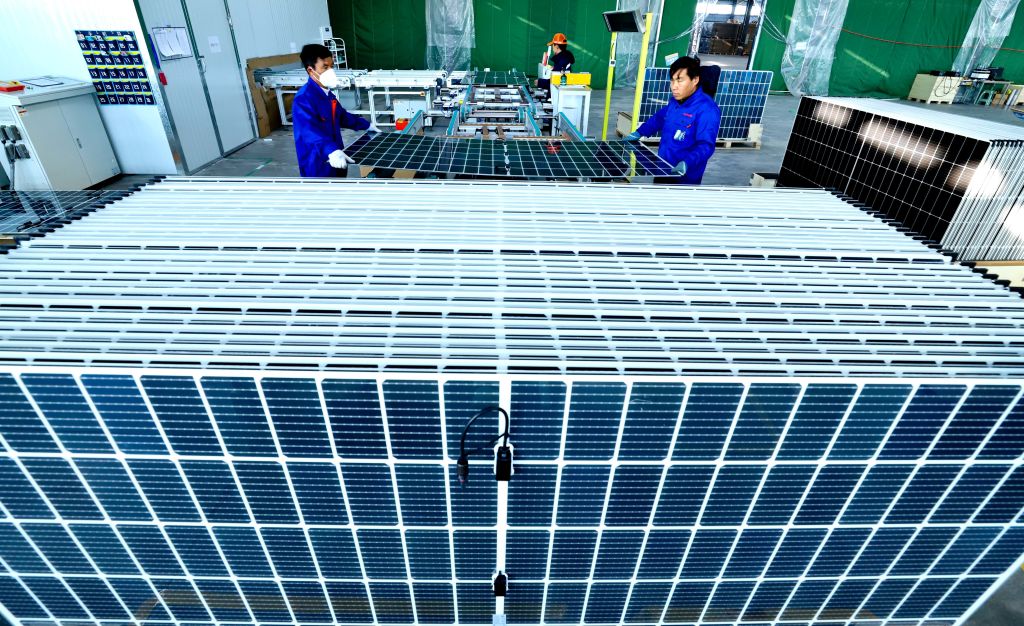It’s the fifth day of COP28, and Harjeet Singh is running late — again. He left his hotel at 7:20 a.m. to get to Expo City in Dubai, United Arab Emirates, where the annual United Nations climate conference is underway. By 8:25 a.m., he’s been stuck in the security line alongside a New York Times reporter and the Canadian climate minister for the last 20 minutes.
Singh ultimately made it to his first engagement with just a minute to spare. Over the next half hour, he led a group of protesters in chants demanding that the world’s richest countries contribute to a new “loss and damage” fund to help vulnerable countries pay for the irreversible costs of climate change. “What do we want? Fill the fund!” his voice boomed. “When do we want it? NOW!”
Singh is the head of global political strategy at Climate Action Network International, or CAN, an environmental group. While CAN is one of some hundreds of environmental advocacy groups that descend on COPs to try to sway climate policy, it’s among the more influential — in part because of its size: The umbrella organization has more than 1,900 member groups in over 130 countries.
Get caught up on COP28
As a result, an official CAN position often represents broad agreement among its diverse member base. When national negotiators look for civil society groups’ approval for the positions they take at COP, they are typically looking to CAN. As such, Singh’s work for CAN at COP28 provides a rare window into the ways that the thousands of COP attendees who don’t directly negotiate on behalf of U.N. member states — the vast majority of those at the conference — nevertheless make their voices heard in closed-door negotiations.
CAN has a two-pronged strategy, working both in the halls of power and outside of it. On the one hand, CAN members are constantly trying to make inroads with people in power, setting up one-on-one meetings with government officials to make their case. But in the streets, members engage in direct action and media campaigns like “Fossil of the Day,” a satirical award given to countries seen as blocking climate action. The award invariably results in negative press, motivating officials in all sorts of countries to work with CAN to avoid winning the award.
“Some countries don’t want to be seen as blockers, and it’s a tool CAN uses to highlight some of those instances,” said Nathan Cogswell, a research associate at the World Resources Institute, a research nonprofit.
In addition to his role at CAN, Singh is the global engagement director for the Fossil Fuel Non-Proliferation Treaty, and he runs an organic farming business with his wife near New Delhi, India. At CAN, he wears many hats: He helps craft the organization’s policy priorities, puts pressure on political leaders, and engages with the media. Over the course of the day I spent with Singh earlier this week, he did all of these things, while also barely eating and constantly getting lost in the sprawling venue. And he continued to run late.
Just after the protest, he was 10 minutes behind for the start of CAN’s Political Coordination Group meeting, a key part of his day. As the head of global policy, Singh is pulled in many directions and doesn’t have time to follow all aspects of COP negotiations, which take place in different groups on parallel tracks. His colleagues are his eyes and ears, and every morning a core group tracking the negotiations meets to discuss where the fault lines are, who is blocking progress, and how to strategically pressure countries to adopt ambitious climate targets.
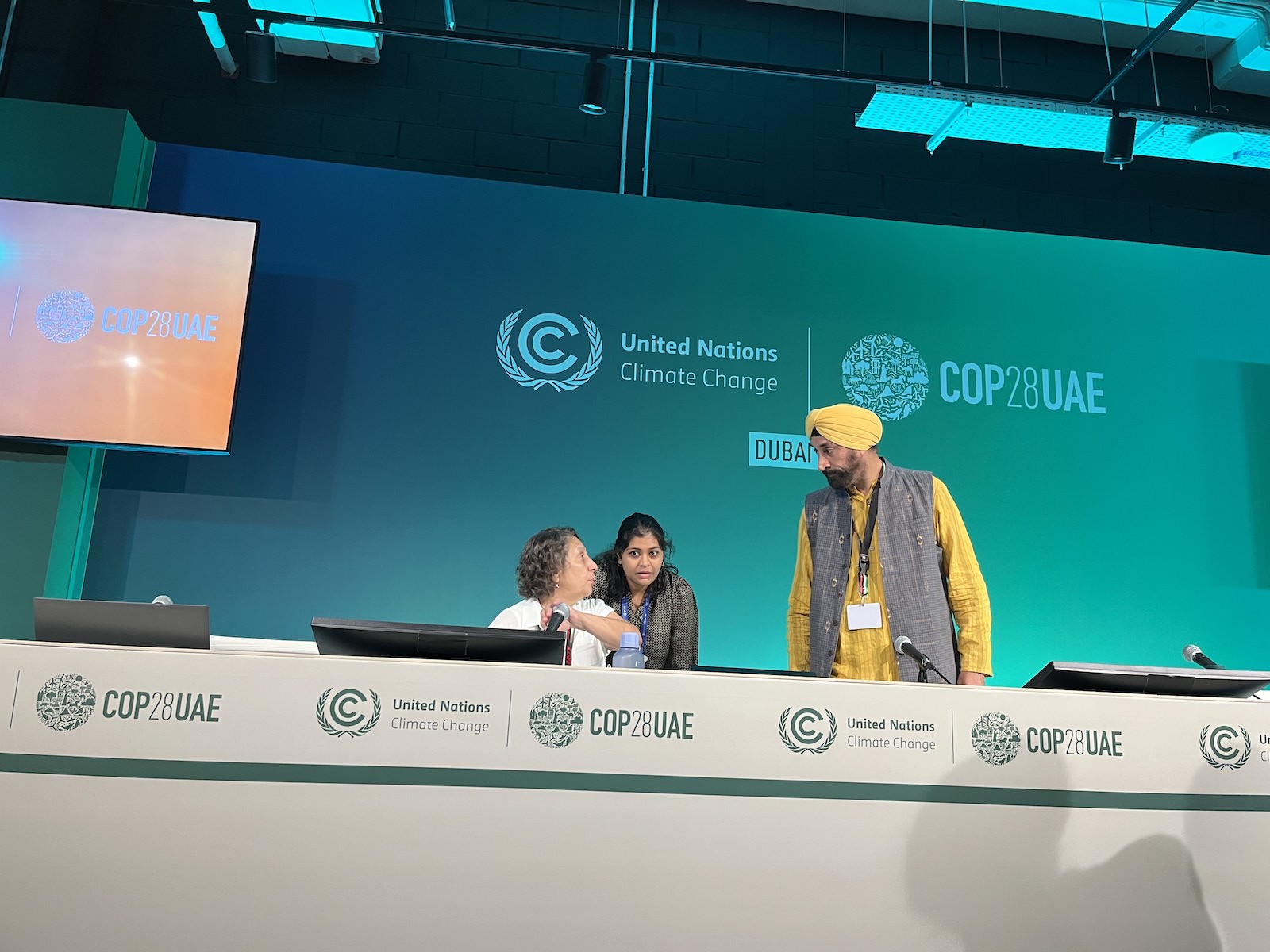
That morning, Singh hadn’t seen the agenda for the day. As soon as he took his seat, advocates began to report their observations from various negotiations. Over the next hour, CAN members discussed which countries were holding up negotiations and an overall advocacy strategy, including setting up one-on-one meetings with national representatives.
“I can’t tell you the number of bilaterals we do,” Singh said later, referring to those one-on-ones. “That’s how we influence.”
The meeting ended with a call for nominations for Fossil of the Day. A few days prior, CAN issued the award to Japan for providing public finance for fossil fuels. Advocates had been trying to meet with Japanese officials and were hitting a wall. But when Japanese media picked up the story, the government was forced to respond, and suddenly CAN advocates secured a meeting with officials.
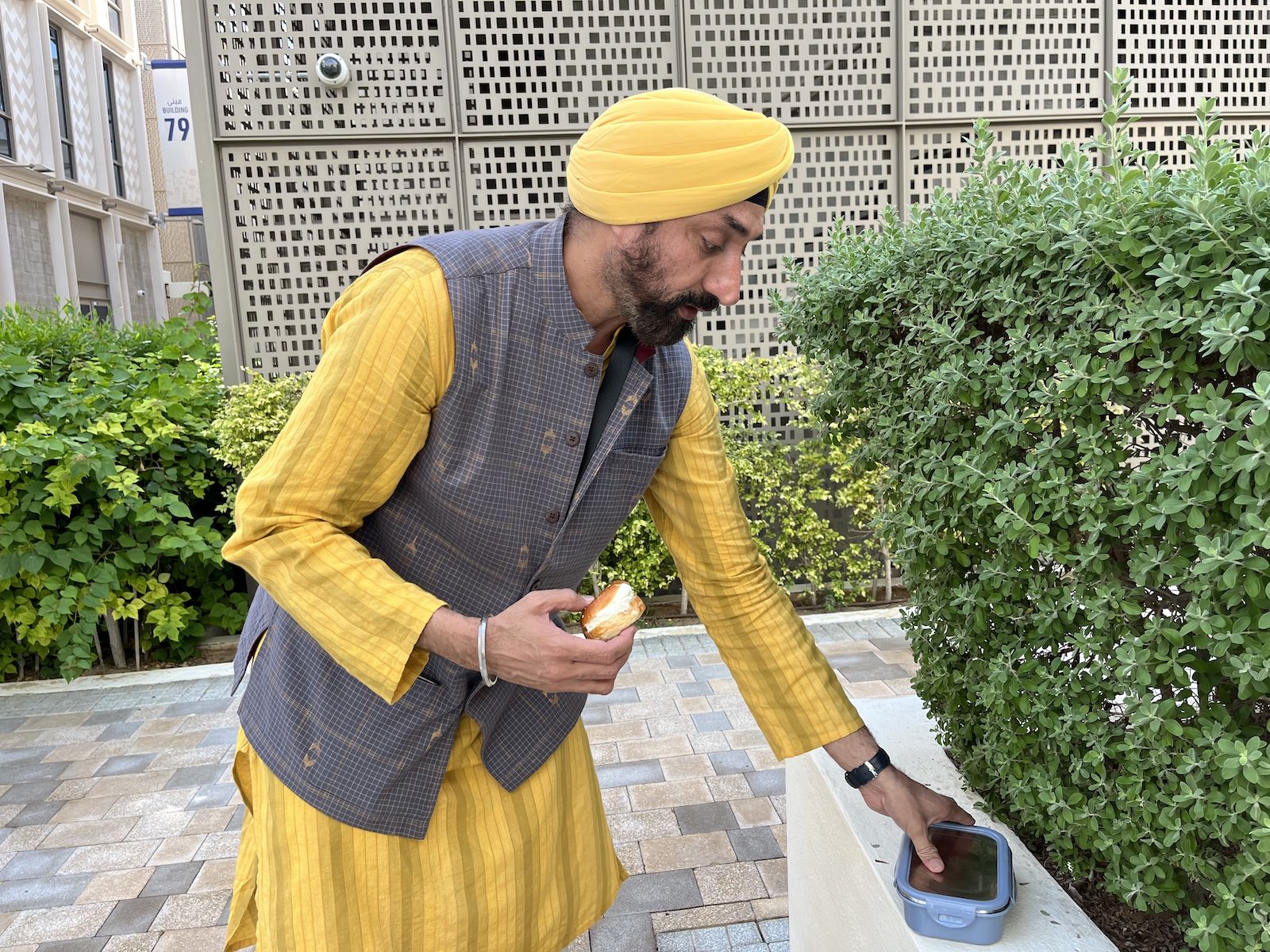
After the meeting and a quick huddle with colleagues, Singh had a 20-minute break. He scarfed down a palm-sized cheese sandwich that he had packed into a metal lunchbox from the breakfast buffet at the hotel in the morning — a common strategy among COP veterans. It was the first thing he’d eaten since his breakfast, a single banana. “Whenever I get time, I just eat on the way,” he said.
After an interview with an Axios reporter and another journalist, Singh rushed to speak at a 1:30 p.m. panel about the role of faith in climate action. He suspected he’d be crunched for time, he told me as he sprinted, but he’d been invited by the Brahma Kumaris Environment Initiative, the environmental arm of a spiritual movement that originated in India, and he couldn’t say no. Singh is Sikh and deeply spiritual.
“It’s not then about whether the timing is perfect and journalists are going to be there,” he said as we raced across the hot pavement. “They want me with them, so I said yes.”
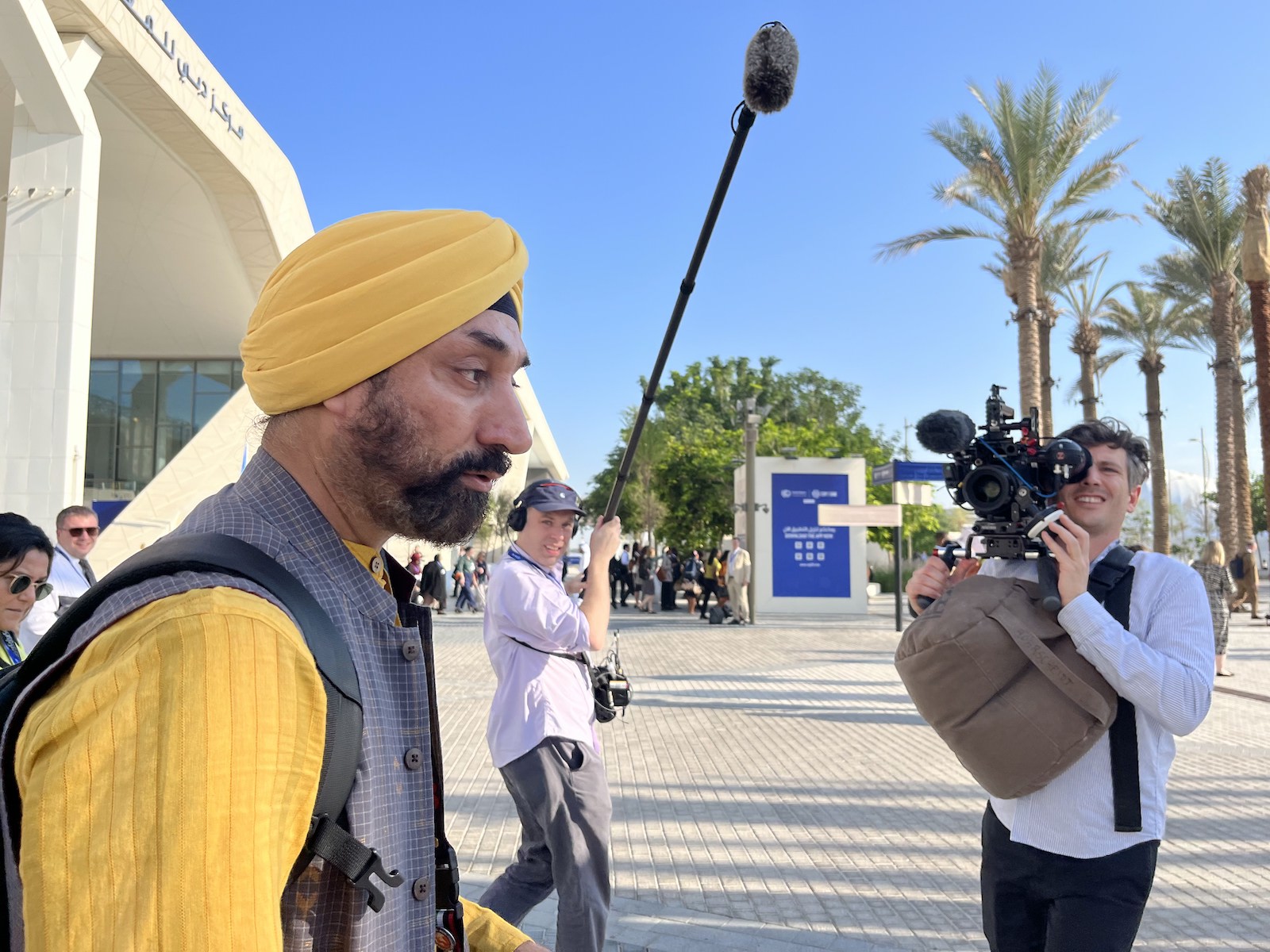
After the panel, Singh set off to CAN’s daily meeting. Unlike the coordination meeting in the morning, which is open to a small group of members who follow the negotiations closely, this meeting is open to the broader group — and is also where the Fossil of the Day is decided. Singh was more than 15 minutes late to the meeting. He snuck in and stood off to the side, charging his phone and munching on whole cloves and cardamom he pulled out of his backpack. “It’s antibacterial,” he told me, hoping to ward off the sickness that can accompany a week like this.
After a round of voting, CAN members crowned Brazil Fossil of the Day for announcing that it will join OPEC+, the international oil cartel, and gave South Africa a dishonorable mention for expanding coal mining operations. The process is surprisingly democratic for such a large group: Members vote through a show of hands at the meeting, and those from the region of a nominated country can veto a nomination.
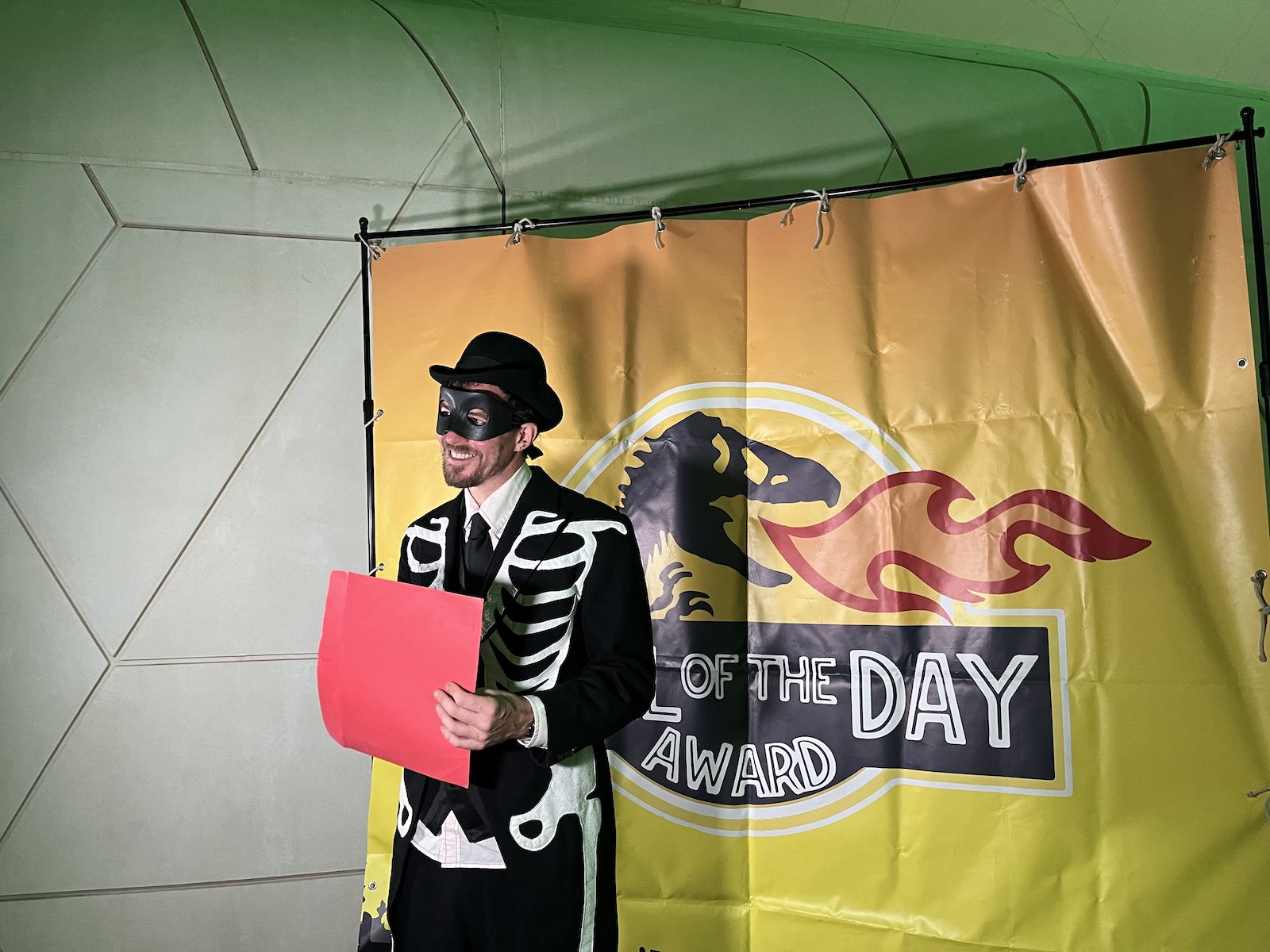
Next up was a two-hour memorial for Saleem Huq, a longtime champion of loss and damage funding for vulnerable countries, and a close friend of Singh’s. Huq picked up social media in his 60s and insisted on daily selfies with him, Singh told the crowd at the memorial, which was organized by Huq’s son. “He was an embodiment of adaptation,” Singh said.
By 4 p.m., Singh was showing no signs of slowing down. He was still running on a banana and a small cheese sandwich, but he picked up an iced Americano and sat down at a bench near the Saudi Arabia pavilion to take a break. Suddenly, he spotted someone walking in the distance, ended the conversation with me mid-sentence, yelled “Emma!” and sprinted off.
He’d spotted Emma Fenton, team leader on international climate policy with the Scottish government. Scotland was the first developed country to formally acknowledge that wealthy countries should help developing countries shoulder the costs of climate change. Singh and the current Scottish first minister, Humza Yousaf, had met at an event earlier this year and built a rapport, Singh later told me. Now he wanted to leverage the connection for a formal meeting with the minister. Yousaf was flying out from Dubai that night, but Cabinet Secretary for Net Zero and Just Transition Màiri McAllan would “obviously like to talk to you,” Fenton told Singh, agreeing to set up a meeting.
Later in the evening, Singh received a WhatsApp message from Fenton, asking him to moderate a panel on loss and damage funding with McAllan. The event clashed with CAN’s daily press conference, but McAllan was the priority — Singh was trying to enlist countries to sign on to the Fossil Fuel Non-Proliferation Treaty, and this looked like a good opportunity to make some headway, given Scotland’s leadership on other climate justice issues. “Not bad,” Singh muttered. “In any case, we want a meeting with Màiri to discuss the fossil fuel treaty, so she’s the right person.”
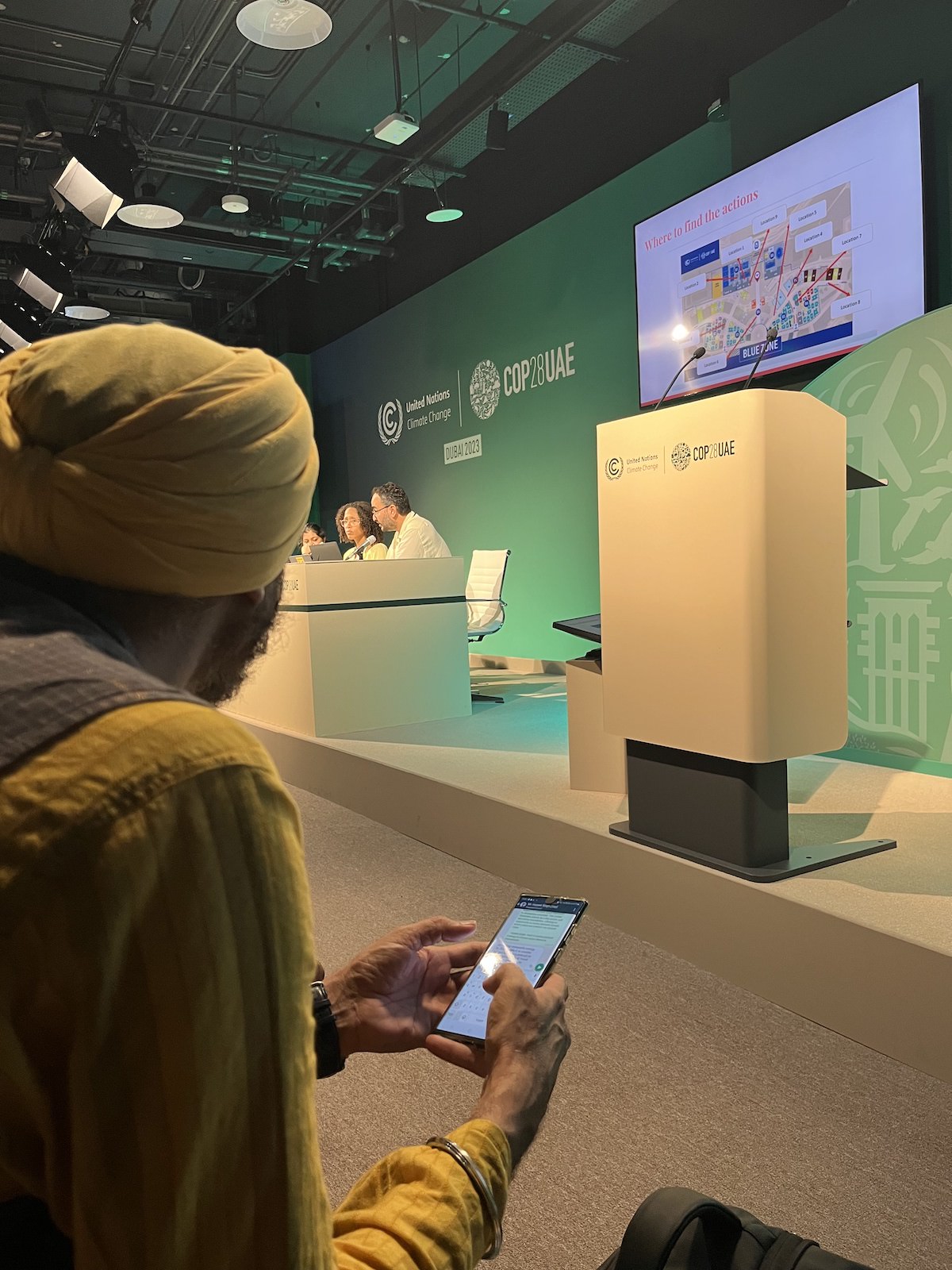
After getting off the train back to his hotel, Singh was ready for a beer. Not all restaurants in Dubai serve alcohol, and he insisted that we find one that does. He ordered a Peroni and promptly returned his attention to his phone to promote social media posts, respond to WhatsApp messages and emails, talk to journalists, and figure out his schedule for the next day.
Singh reached his hotel lobby around 9:30 p.m., but his day wasn’t close to over. Over the next four hours, he updated CAN leadership and a Scottish CAN member about his conversations with Fenton. He also talked to the editor of Eco, a CAN newsletter published daily during COPs, which targets negotiators and is handed out at the entrance of the COP28 venue early in the morning as decision-makers walk in. Later, when Singh got to his room, he messaged a producer at the independent TV news program Democracy Now! about his big takeaways from COP28 and the key points he wanted to emphasize in a segment he’d record with host Amy Goodman in the coming days.
By the time he hit the bed, it was a little past 1 a.m. He was ready to do it all over again the next day.

